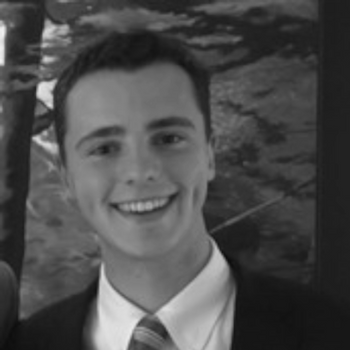Wisconsin student labeled 'disruptive' for passing out 'Jesus loves you' valentines takes a stand
A Wisconsin student sued her school on Tuesday after the administration labeled her a “disruptive student” for handing out Valentine’s Day cards reading “Jesus loves you.”
Northeast Wisconsin Technical College (NWTC) student Polly Olsen sued her school for what she termed an “unconstitutional” Public Assembly Policy, according to a lawsuit obtained by Campus Reform.
NWTC restricts what it deems as “disruptive” free expression and free speech, as protected by the First Amendment, to a tiny box on campus that makes up less than one percent of the campus. Olsen described the school’s “free speech zone” as “about the size of two buses next to each other,” highlighting the fact that no one “congregates there, they just walk through,” something she suggested prohibited her from having meaningful conversations with others.
Olsen said that her inspiration to hand out valentines came from her mother, who, before her passing, gave them out to provide hope to those who most needed it, when speaking with Campus Reform. The student said that the past few years have been hard, as her mom died and her brother broke his neck, while Olsen, herself, has been homeless.
“Since my mother’s passing, I have carried on the tradition in her memory,” the student said.
According to the lawsuit, a campus security officer confronted Olsen on February 14, 2018 while she was handing out the valentines, and told her that she was violating the school policy by “soliciting” and being a “disruptive student.”
Olsen was not selling anything, as the term “soliciting” implies. Instead, she was handing out heart-shaped valentines with phrases such as “Jesus loves you,” “you are special!” and “you have a purpose,” along with the relevant books and line numbers.
She said the security officer told her that she could only hand out the valentines in the “free speech area” on campus, which requires prior reservation and approval. NWTC’s “public assembly area,” also called the “free speech zone” must be “reserved between the hours of 8:00 a.m. and 9:00 p.m.
Students can reserve space for a maximum of three consecutive days.
Olsen says she has repeatedly tried to arrange a time to meet with college officials to be heard. She claimed that this approach hasn’t yielded any results beyond making her “hopeless and hurt” regarding the school’s inaction.
[RELATED: McAdams defeats Marquette in WI Supreme Court]
The security officer allegedly took Olsen to NWTC’s security office, where Olsen says she spoke with the supervisor and director of campus security about the incident.
“NWTC thinks that they have the right to prohibit this freedom,” the student told Campus Reform. But this is “unconstitutional, dogmatic, and not what education is about.”
[RELATED: VIDEO: Students sign petition to ban ‘offensive’ Valentine’s Day]
NWTC’s Public Assembly Policy “is an unconstitutional abridgment of the rights of Plaintiff and other students’ freedom of speech under the First and Fourteenth Amendments to the United States Constitution,” according to the court complaint, which was filed by the Wisconsin Institute for Liberty and Law (WILL), the organization representing Olsen.
Olsen described her fight for free speech in a video for WILL:
[RELATED: Conservative lawsuit against U of I proceeds to federal court]
The school’s vice president of advancement, Karen Smits, told Campus Reform that NWTC is “committed to the free exchange of ideas and to maintaining a welcoming and safe environment that promotes student success,”
Smits declined to comment on the specific incident due to “student confidentiality.” She further defended the college by saying that “free speech is exercised every day in many different contexts all over the NWTC campus” and that the “policy deals with ‘public assembly’ as the law recognizes that, unlike a public park, not all physical areas of educational institutions are open for ‘public assembly’.”
Smits noted that NWTC is finishing a review of its Public Assembly Policy, started October 2017, and that it has invited Olsen to participate in the review.
Follow this author on Facebook: Zachary Thomas Petrizzo and Twitter: @Zach_Petrizzo


